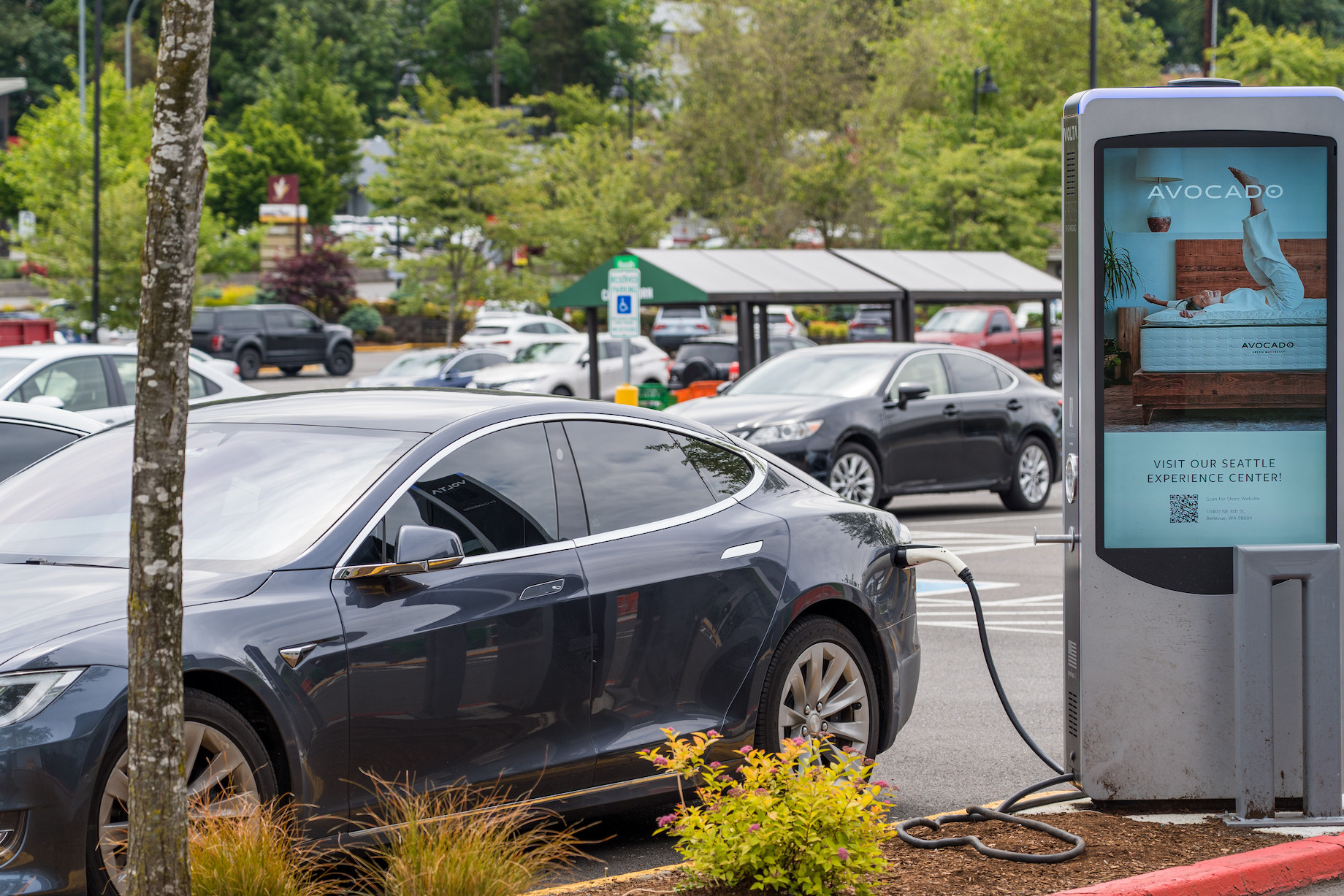Kimco Realty is powering forward with installation of electric vehicle charging stations at its centers. At the same time, the REIT has its eye on 2025. It has set the public goal of having low-carbon infrastructure — which could mean EV stations, bike racks, public transportation infrastructure and the like — at 25% of its properties by then. Its current portfolio numbers 530 open-air, grocery-anchored shopping centers.
The portfolio, totaling 91 million square feet of gross leasable area, concentrates primarily in the first-ring suburbs of the major U.S. metropolitan markets, including those in high-barrier-to-entry coastal markets and rapidly expanding Sun Belt cities. The tenant mix focuses on necessity-based goods and services that drive multiple shopping trips per week.
“We have a strong conviction that electric vehicles are where the market is going and are net positive for the climate as electric utilities incorporate more renewable sources into the grid power mix,” said Kimco senior vice president of strategic operations Will Teichman. “The electrification of transportation is happening and will transform the single passenger and fleet markets by the end of the decade.”
Kimco has installed EV charging stations at 70 of its centers and is evaluating several hundred additional sites.

An electric vehicle charging station at Kimco Realty’s Marketplace at Factoria in Bellevue, Washington
He said many of Kimco’s national brand tenants are on board. “We gauge their interest, and those that are most excited about making EV charging available to their customers become priority locations for future installations,” he said.
He also noted that most Kimco properties are fully stabilized, existing retail centers, so there’s a chance for change like EV stations when the company acquires new properties or redevelops assets. “This is a one-time opportunity for us to plan for infrastructure upgrades that support EV stations,” Teichman said.
Level 2 Versus Level 3
Kimco has been installing charging stations for about 10 years. It partnered with EVgo to develop one of the first Level 3 retail charging stations in California, in 2013 at Westlake S.C. in Daly City, a few miles south of San Francisco.
Teichman said Level 3’s speed is an important factor for open-air retail customers looking to purchase goods and services and get on with their days. Level 3 stations can give an 80% charge to a typical EV in about 30 minutes, compared with several hours when using a Level 2. For residential buildings, which are a growing part of its portfolio, Kimco uses Level 2 charging stations, as residents are more inclined to charge their EVs overnight, Teichman said. Kimco plans to expand charging infrastructure to all residential sites by year-end.
Costs
Installation costs vary based on the number of stations, whether they are Level 2 or 3, and proximity to electrical infrastructure, such as transformers. He estimated price from under $10,000 for a single Level 2 station at a residential site to hundreds of thousands for a more comprehensive, Level 3 build at a retail center.
Who Operates Them?
Third parties like EVgo, Tesla, Volta and Electrify America manage and maintain most of Kimco’s retail EV stations. Teichman said the landlord and the EV operator enter into a ground license agreement that defines the scope of the relationship and economic terms. In other instances, Kimco purchases charging station equipment from an established EV equipment manufacturer. Those chargers connect to a third-party network, which sets market rates for end users.
By Paul Bergeron
Contributor, Commerce + Communities Today